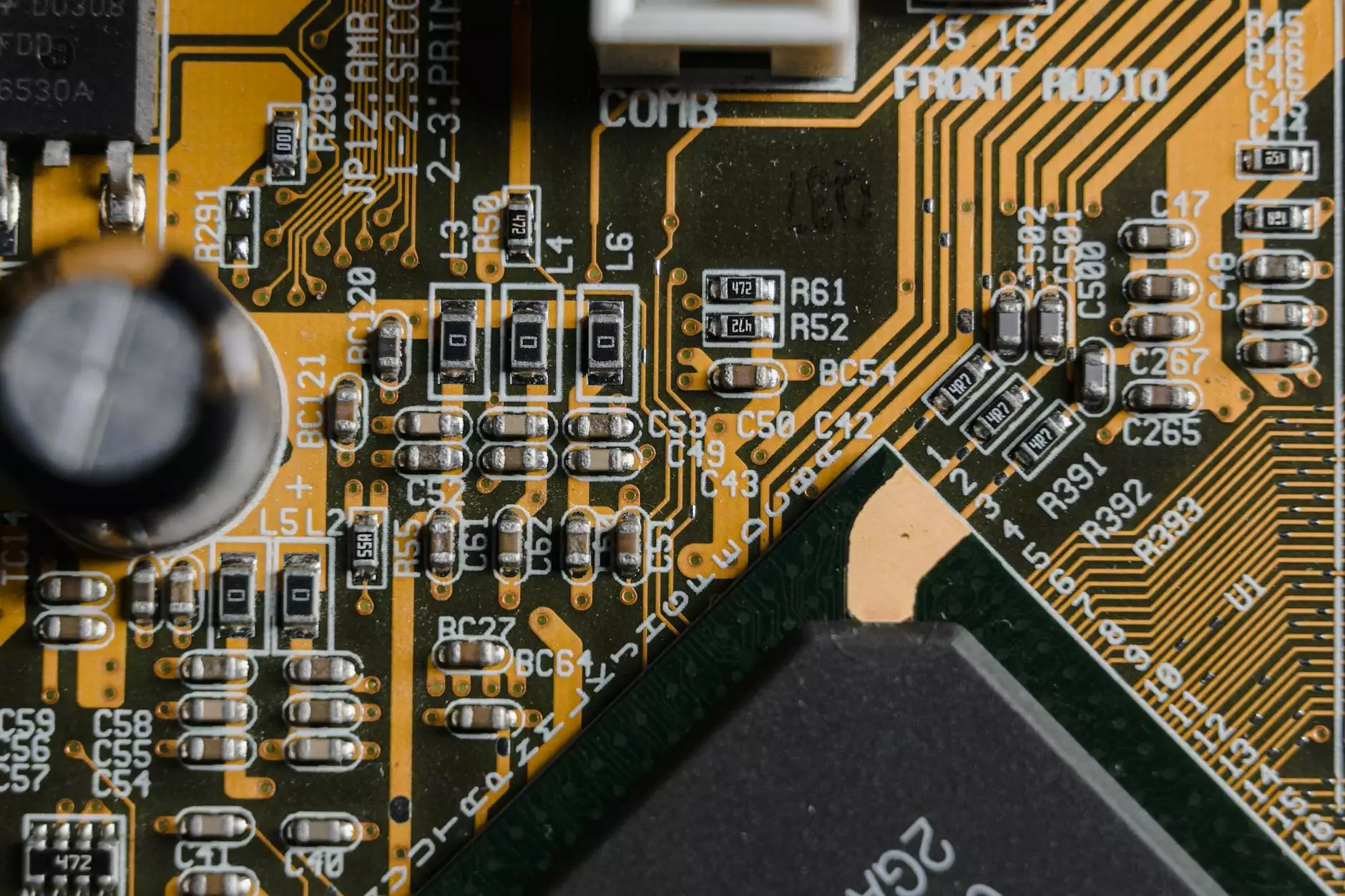Plastic Industrial Blade Manufacturers: Crafting Precision and Efficiency

Plastic industrial blade manufacturers play a vital role in the modern manufacturing landscape. Their products significantly contribute to various industries, enhancing efficiency, precision, and safety. In this comprehensive guide, we delve into the essential aspects of plastic industrial blades, the manufacturing process, prominent manufacturers, and their applications across different sectors.
Understanding the Role of Plastic Industrial Blades
Plastic industrial blades are specialized cutting tools designed for high-performance applications, particularly in the manufacturing and processing sectors. Unlike traditional metal blades, plastic blades offer numerous advantages, including:
- Corrosion Resistance: Plastic blades do not rust or corrode, making them ideal for wet environments or industries where corrosive materials are present.
- Weight Advantages: Their lightweight nature reduces strain on machinery and operators, enhancing overall productivity.
- Safety: Plastic blades minimize the risk of serious injuries, making them a safer choice in many applications.
- Cost-Effectiveness: Often more affordable than metal counterparts, plastic blades offer significant savings in both initial purchase and maintenance costs.
The Manufacturing Process of Plastic Industrial Blades
The process of manufacturing plastic industrial blades involves precise engineering and advanced technology. Here’s a detailed look at the steps involved:
1. Material Selection
The first step in the manufacturing process is selecting the appropriate plastic material. Commonly used materials include:
- Polyethylene (PE): Known for its durability and flexibility.
- Polypropylene (PP): Offers excellent chemical resistance and fatigue strength.
- PVC: Provides good rigidity and environmental resistance.
2. Design and Engineering
Once the material is selected, the design process begins. Advanced CAD (Computer-Aided Design) software is used to create detailed models of the blade, ensuring optimal performance and fit for specific applications.
3. Injection Molding
The next step is injection molding, a process that involves:
- Heating plastic resin until it becomes molten.
- Injecting the molten plastic into a mold.
- Cooling and solidifying the plastic to form the blade.
4. Finishing Touches
After the injection molding process, blades are subjected to various finishing processes, including:
- Trimming: Excess material is removed to achieve the desired shape and size.
- Sanding: Edges are smoothed to ensure safety and efficiency.
- Quality Control: Each blade undergoes rigorous testing to meet industry standards.
Key Players in the Plastic Industrial Blade Manufacturing Sector
Numerous companies specialize in manufacturing plastic industrial blades, each known for their unique offerings and innovations. Some notable manufacturers include:
1. SZ Blade
Headquartered at szblade.com, SZ Blade is a leading name in the industry, renowned for its cutting-edge manufacturing techniques and a diverse range of plastic blades. Their products are celebrated for their quality, durability, and innovative designs tailored to meet specific client needs.
2. Acme Plastic Blades
Acme specializes in custom plastic blade manufacturing. Their ability to provide tailored solutions makes them a favorite among businesses in need of specialized cutting tools.
3. Plastics Unlimited
A well-known player in the plastic industry, Plastics Unlimited offers a wide array of industrial blades, focusing on providing robust and reliable products suitable for demanding environments.
Applications of Plastic Industrial Blades
The usage of plastic industrial blades spans across multiple industries. Here are some prominent applications:
1. Packaging Industry
In the packaging industry, plastic blades are used for cutting films, foils, and various packaging materials. Their precise cutting abilities ensure minimal waste and enhanced productivity.
2. Food Processing
Plastic blades are ideal for food processing applications due to their non-corrosive nature, ensuring that they meet hygiene standards. They are used in slicing, dicing, and cutting a variety of food products without contamination.
3. Textile Industry
The textile industry relies on plastic blades to cut fabrics with utmost precision. Their consistent performance significantly enhances operational efficiency in fabric manufacturing and processing.
4. Woodworking
In woodworking, plastic blades are utilized for cutting and shaping wood materials. The lightweight nature of these blades allows for better control and reduced fatigue for operators.
The Advantages of Choosing Plastic Industrial Blades
When it comes to selecting cutting tools, plastic blades present several compelling advantages:
- Versatility: Suitable for various applications across different industries, plastic blades can be customized for specific tasks.
- Reduced Downtime: The durability of plastic blades leads to fewer replacements, resulting in less downtime for machinery.
- Environmentally Friendly Options: Many manufacturers are now producing biodegradable plastic blades, contributing to sustainability efforts in manufacturing.
Future Trends in Plastic Industrial Blade Manufacturing
The future of plastic industrial blade manufacturing looks promising, driven by innovations and emerging technologies. Here are some trends to watch:
1. Sustainable Materials
With rising environmental awareness, manufacturers are exploring the use of sustainable and biodegradable materials for producing plastic blades. This shift not only reduces environmental impact but also appeals to eco-conscious consumers.
2. Automation and AI
Automation technologies and AI-driven processes are becoming integral to plastic blade production. These advancements streamline manufacturing, enhance precision, and reduce production times.
3. Customization and Personalization
As industries demand more specialized tools, manufacturers are focusing on providing customizable options, allowing clients to order blades tailored to their exact specifications.
Choosing the Right Manufacturer for Plastic Industrial Blades
Selecting the right manufacturer for plastic industrial blades is crucial for achieving optimal performance and reliability. Here are factors to consider:
- Experience and Reputation: Look for manufacturers with a proven track record of quality and reliability in the industry.
- Product Range: Ensure the manufacturer offers a wide variety of blades to meet your specific needs.
- Customer Support: Good customer service is essential for addressing any issues that may arise post-purchase.
- Quality Assurance: Verify that the manufacturer adheres to strict quality control measures to ensure the durability and performance of their blades.
Conclusion
In conclusion, plastic industrial blade manufacturers play an indispensable role in a multitude of industries, providing tools that enhance efficiency, safety, and precision. With advancements in technology and a focus on sustainability, the future of plastic industrial blades is bright. Whether you are in the packaging, food processing, textile, or woodworking industry, considering the right manufacturer can significantly impact your operational success. Explore the offerings of reputable manufacturers like SZ Blade at szblade.com and invest in high-quality plastic industrial blades that meet and exceed your expectations.









